Dreaming of making unlimited money by sharing knowledge you already have? Then it’s probably time you started working for yourself and became a consultant.
Consultants are in demand across multiple sectors, bringing their expertise to the table – and getting rewarded for their time.
But starting a consulting business is a big step. It requires figuring out how you can make it work for you, from your expertise level to your business skills.
The exciting thing is that many areas of consultancy are as much about real-world experience and professional training/certification as they are about formal education.
So, here, we look at 6 signs you’ve reached the point where starting a consulting business is a no-brainer. We also give you some tips on building a successful consulting business.
First, we’ll take you on a whistle-stop tour of what it means to be a consultant, so you can understand where you might fit into this exciting, challenging, and potentially lucrative world.
What do consultants do?
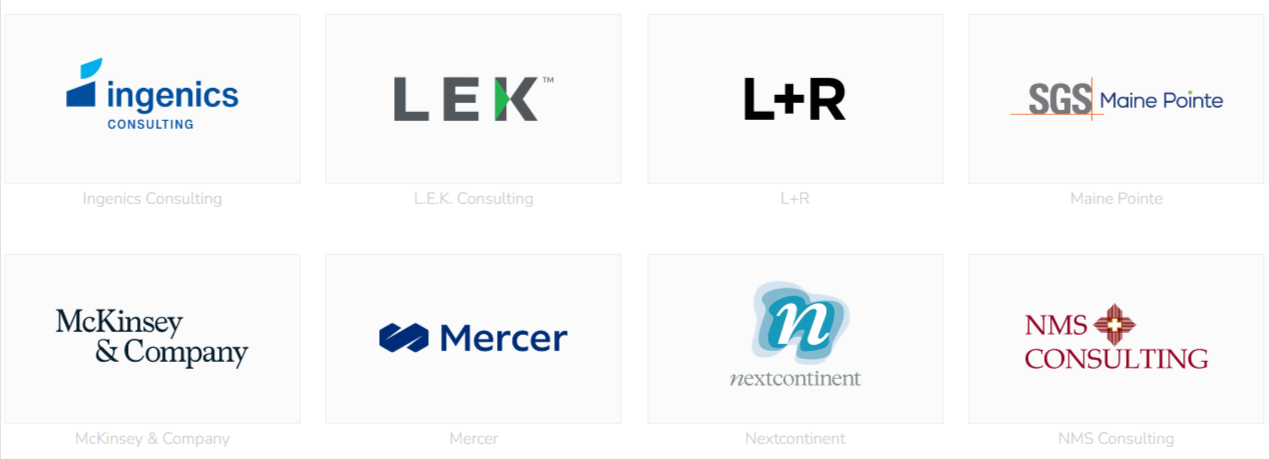
Consultants are recognized experts in their field who are brought in to help clients solve problems and improve processes. They are not employees – they are usually used on an ad hoc basis for a project or to meet a specific business goal.
As a consultant, your clients might be businesses (from SMEs to multinationals), non-profits, governments, or individuals.
A consultant might work for a consultancy firm or become an independent contractor, working for themselves (or in a partnership), finding their own clients, and setting their own rates.

Freelance consultants find clients by networking, using contacts in their industry, or through channels like LinkedIn and even Upwork.
Globally, consultant sourcing firm Consulting Quest puts the size of the market at $250bn, with a 6% annual growth. The world’s top three consultancy firms are Boston Consulting Group, Bain & Co., and McKinsey & Co., where the highest-paid partners rake in over $1m a year.
Consultant vs. coach
There is some overlap between consulting and coaching. However, consultants earn a fee to provide clients with solutions. Coaching, on the other hand, is more about providing tools and encouragement to help clients figure out their own solutions.
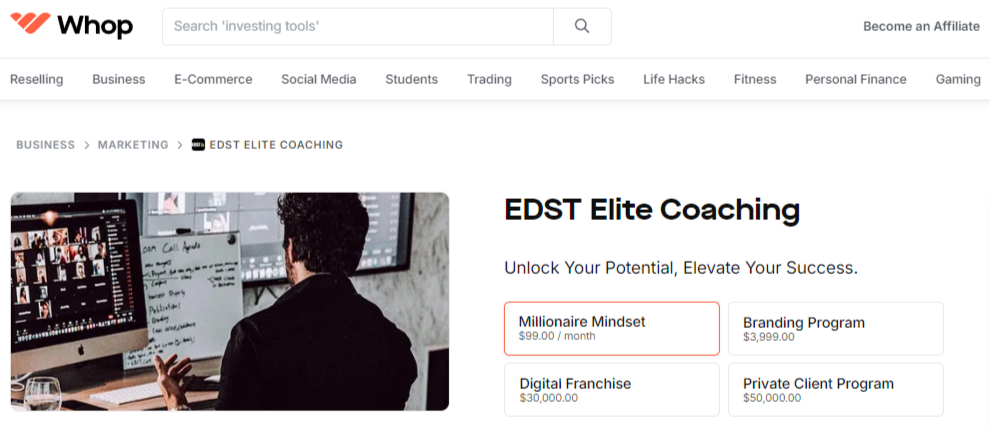
In many ways, coaching is closer to mentoring. Coaches often develop a more personal relationship with their clients. They may even help them with life issues, as well as work-related goals.
Consulting is a more professional arrangement, where there is typically a measurable outcome. This might be boosting a firm’s operating margin, assisting with a legal case, or even generating customer leads through social media engagement.
Think coaching might be right for you? Read our post on starting a coaching business.
What niches do consultants work in?

When you think about the word “consultant” you might think about MBA grads and business execs sitting in boardrooms.
Consultants are indeed brought in to provide expert advice across different business functions and sectors, varying from compliance and operations to legal and security issues.
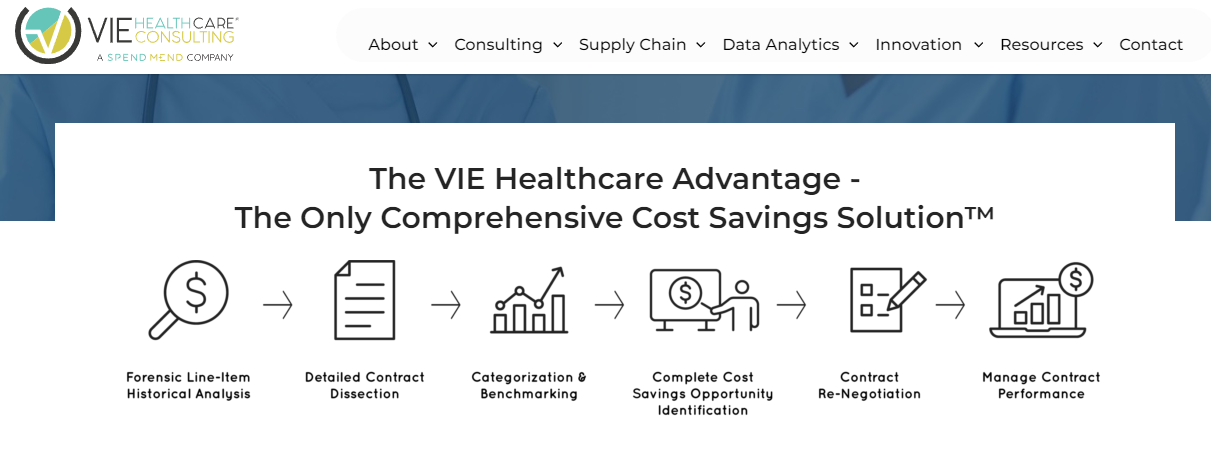
However, there are also lucrative consulting opportunities open to people with expertise across such areas as:
Marketing
Companies and organizations hire consultants to help develop and execute marketing strategies. Consultants might work alongside the firm’s core marketing team or, in smaller firms, they might be the marketing team. This is an exciting and diverse area, which includes SEO, content marketing, and paid ads.
Success here means a combination of skills across media, communications, and business, as well as marketing.
Social media
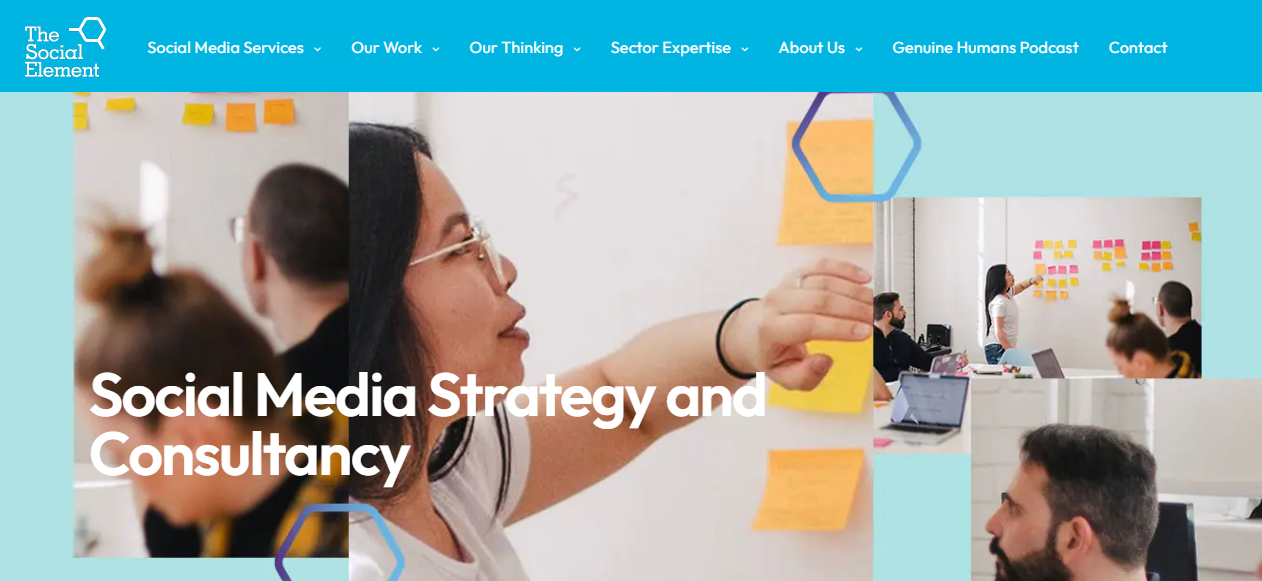
Social media consultancy has emerged as a branch of marketing, as firms turn to the main platforms to promote their brands and communicate with their customers.
Successful consultants in this area have proven experience in managing and growing a social media presence and in executing strategies that have achieved measurable results.
Public relations
There is some overlap with marketing and social media but PR consulting is more about helping clients to maintain (or repair) their reputation and build positive media relationships. You might be involved in things like strategic planning and press relations.
This might cross into areas like content creation, so it requires knowledge of marketing, as well as media and communications.
Fitness & health
Consultants in this sector have some similarities with personal trainers as they provide individuals with bespoke workout plans. They also offer guidance on nutrition and other aspects of healthy living.
As well as being independent contractors, fitness and health consultants work in settings like gyms and fitness centers.
College admissions

Consultants in this space help students to get ahead in higher education. They might be brought in to find the right schools, help craft compelling applications (as an advisor, not preparing the application for the student), and research financial aid.
Often, college consultants have gone through a specific admissions process themselves, such as getting into a top medical or law school, and can help others to do the same.
That’s just the start…
You can find consultants working across lots more areas, including sports, career guidance, and real estate, where they’re turning their skills, knowledge, and expertise into money.
Sound good?
Before you dive in and launch your consulting gig, set yourself up for success by taking some time to find out if you’re really ready to go it alone.
How to know you’re ready to start your consulting business
Starting a consulting business is a big step. Going solo means you take the lead in selling your services and managing clients. While it can pay off, big time, here are some signs you are truly ready.
1. You have niche expertise
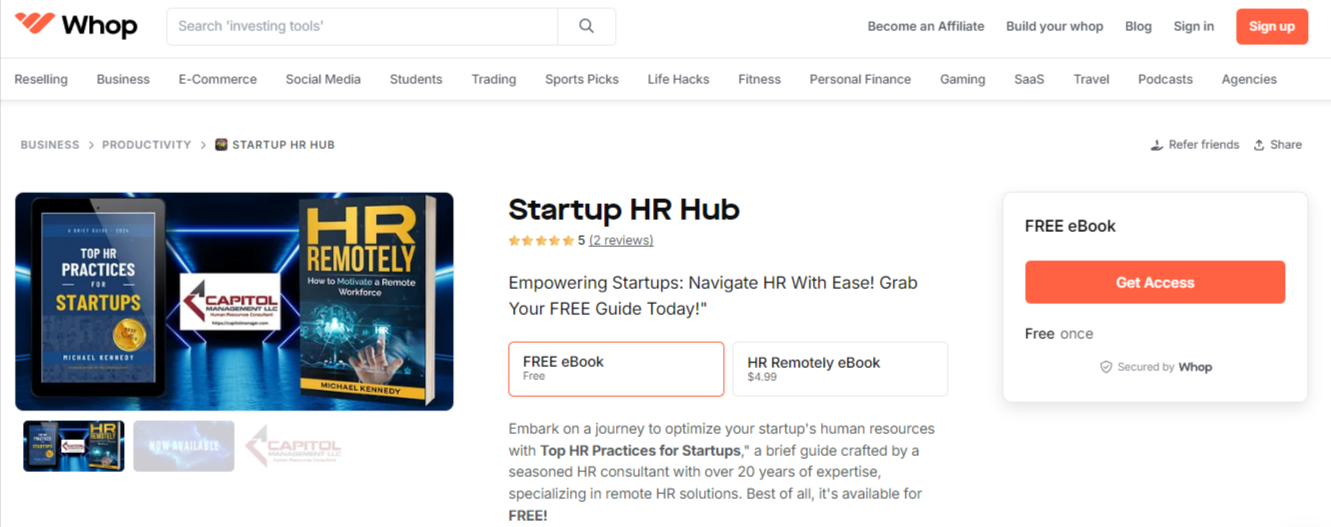
As a consultant, you’re expected to have good knowledge of your area – that’s why clients pay you the big bucks! You add something to their business that they lack.
When it comes to consulting, “expertise” means having the necessary knowledge and experience to deliver value for a client. This will vary by sector, niche, or business function.
It can come in the form of one or more of the following:
✅ Formal education: higher degrees in a subject relevant to your sector
✅ Professional training: recognized and accredited certification
✅ Work experience: time spent as an employee in your sector
✅ Real-world experience: concrete achievements that mark you out as an expert
You might offer a mix of these…
For example, a person who has a degree in marketing, HubSpot training, several years in a marketing role, and a strong personal social media presence is likely to add huge value as a consultant.
Similarly, a person who has built a successful ecommerce business from scratch will have plenty of valuable knowledge to share, even if they don’t have any formal training or higher education.
If you’re confident you’ve got the expertise to help others achieve their goals, this might be a great time to launch your consulting business.
Not quite there yet? No problem. The good news is that you can build your expertise in any number of ways.
For example, once you’ve decided on your consulting niche or specialty, research the industry and connect with professionals in that field. You can even launch an online business selling digital products or build a community to establish your authority and lay the groundwork for launching your consultancy services.
2. Helping others is important to you
While we’re all about making money online here at Whop, some types of businesses come with an added requirement – a desire to help other people.
Being a consultant is one of these, as you’ll be spending your working life interacting with all kinds of clients.
If you love interacting with people and sharing your knowledge, your own consulting business may be calling.
BTW – Being a consultant is not the only way you can profit from your knowledge while helping others. You could also enter the e-learning space. We mentioned coaching and mentoring earlier, but there are also opportunities in:
These are also great ways to get your name out there, build a network, and share your expertise while growing your knowledge-sharing skills.
3. You've found a gap in the market
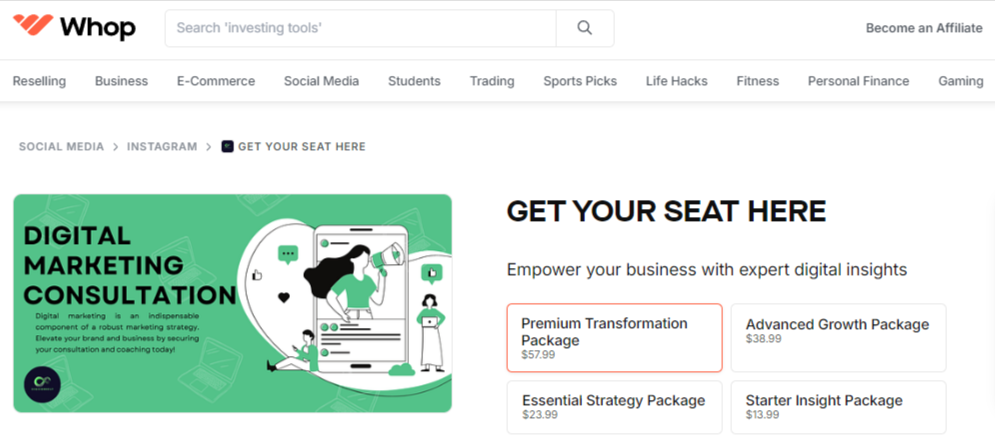
If you want to launch a consulting business, you’ll need to attract clients. That means standing out from the competition. Before you launch, think about what you can offer that others in your niche can’t – in other words, find a gap in the market.
This might be a specialty or sub-niche where you excel or a specific real-world experience that sets you apart from others.
If you can define your “special sauce” or USP (unique selling point), you’re in a great place to position yourself in the market and promote your consulting services to potential clients.
Still looking for your USP? Finding your gap in the market is likely to mean carrying out research into your industry to see what other types of consultancy services are available. This might be as simple as asking your existing audience or reaching out to former employers.
4. You have the right skillset
Beyond niche expertise and a desire to help others, successful consultants generally have a range of other skills. These include:
✅ Leadership: Your clients will look to you for decision-making and strategy.
✅ Time management: You will need to stick to deadlines and show up to appointments and meetings on time, whether online or in person.
✅ Problem-solving: Being a consultant means being able to tackle anything that comes up, sometimes employing “out-of-the-box” methods.
✅ Interpersonal skills: You need to be comfortable dealing with all kinds of people, maybe up to the C-suite level.
✅ Sales & marketing: As a “solopreneur”, you’ll be selling your services to a potential client base and selling clients your ideas for achieving their goals.
Before you launch your business, think about the skills you have now and any training you might need.
Already ticking these boxes? You might have everything you need to launch your very own consulting business.
Unsure if you’ve got what it takes? You can always hire someone else to help on a freelance basis, such as a web designer or branding guru to give your online presence a professional look.
5. You want to start a business
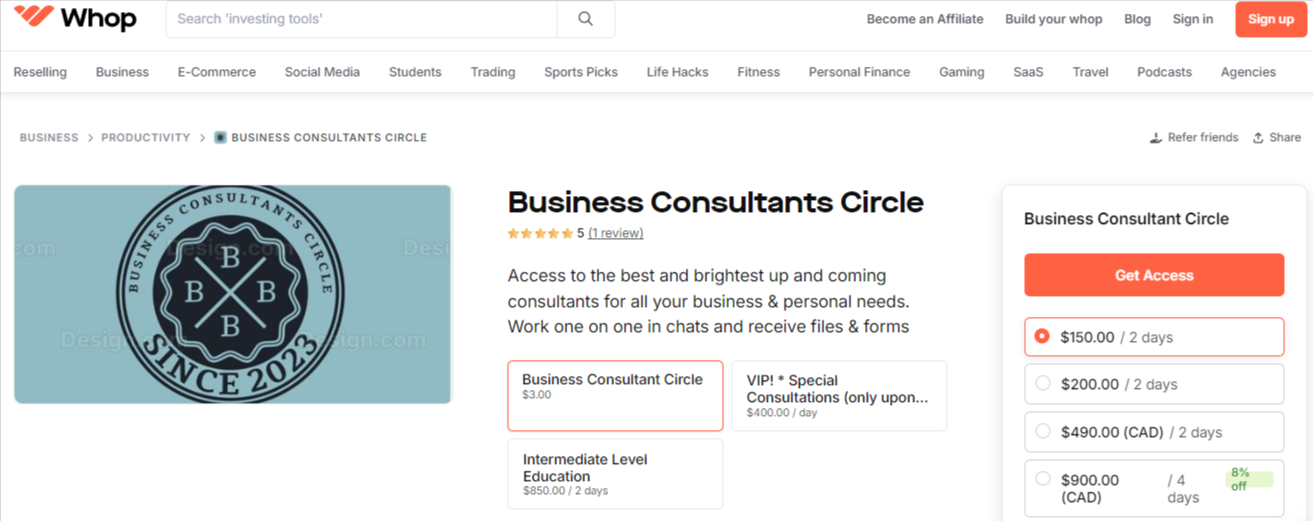
It may sound obvious, but starting a consulting business is the same as starting any other type of business.
You need to do things like choose a name that resonates and stay on top of invoicing, payments, and taxes. You’ll also need to build a professional website and find a way to generate leads.
Down the line, you might want to hire other people to help or outsource some of your day-to-day activities. Depending on the business structure and where you live, there might be requirements to register and file paperwork.
The good news is that there are lots of tools and platforms out there to help you. But starting and running any type of business is still a commitment.
If you’re ready to take the reins and create your own success, think about jumping in and launching your consulting business.
If you do, the rewards can be huge…
6. You’re ready to earn big
Okay, so we’ve been through the planning stuff. Now it’s time to find out what you can make by going solo as a consultant.
Of course, as a freelancer or independent contractor, your income potential is unlimited. You can set your own rates and decide what clients to work for.
You can also add extra value by putting out additional paid resources in your niche, like ebooks and podcasts.
Additional options include hiring other consultants to work with you or partnering with another expert who works in a related field. This all boosts your offering and your worth to clients – many of whom will have deep pockets.
Plus, the better results you generate, the more your positive reputation will spread and your rate will go up.
As a general guide, here is what U.S.-based consultants earn annually:
| 💰 Top end | 💰 Average | |
|---|---|---|
| Business consultant | $240k | $85k |
| IT consultant | $135k | $92k |
| Social media consultant | $100k | $67k |
| PR consultant | $135k | $86k |
| Marketing consultant | $128k | $87k |
| Fitness consultant | $45k | $30k |
Sources: Glassdoor/Talent.com/Indeed
When it comes to pricing your services, you’re likely to work on an hourly or per-day figure. This is generally how you will bill clients.
There may be times when you work on a retainer (i.e. they pay you a regular amount to be available when they need you). Sometimes, it might be on a per-project basis with a set fee.
However, when a prospective client contacts you to enquire about your services and rate, they’re going to want an idea of your hourly or per-day figure.
There are various strategies to calculate these rates. A good starting point is looking at the average that's charged in the industry.
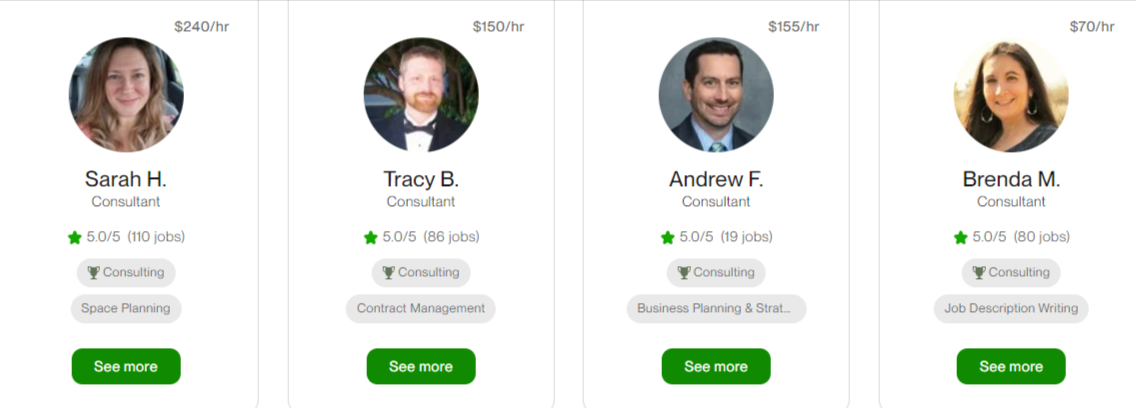
For example, according to Upwork, the average hourly rate charged by marketing consultants is $25 to $100. For business consultants, the average is $50 to $150+ an hour.
If these figures put dollar signs in your eyes, you know what to do – work towards launching a consulting business and achieving true financial freedom.
So, there you have it, 6 signs you might be ready to go solo as a consultant.
Tips on succeeding in your consulting business
If you think you have what it takes to start a consulting business, we end with some advice on finding success.
Put together a business plan
Once you’ve decided to launch your consulting business, one of the first things to do is put together a business plan. This should include basic information about how you’re going to organize and run your business, such as your budget and marketing strategy.
Prepare template contracts
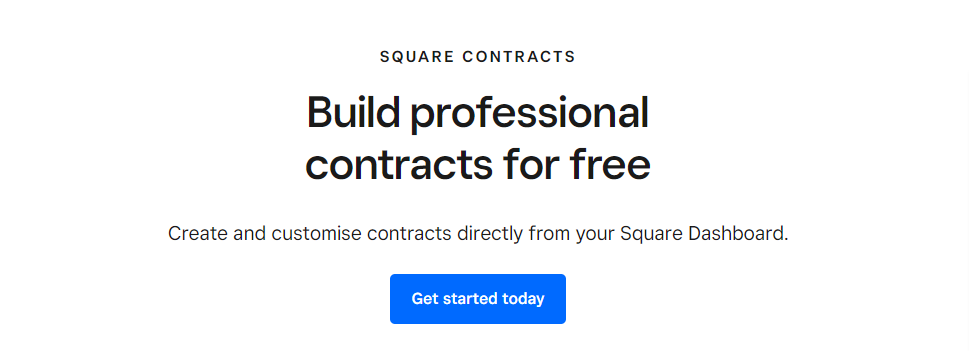
As you start securing clients, you’ll need to get things in writing. You can set up template documentation for contracts, invoices, and draft proposals, altering the details as needed for each client and project. Ask a lawyer or explore the templates available online.
Negotiate on fees
The fees we discussed above are a good guide. However, when you’re starting out, prepare to be flexible. The experience and potential goodwill offered by a client might mean negotiating a lower rate is a good approach for long-term success.
Ask for a testimonial
When a client is happy with your work, don’t forget to ask for a review, a testimonial to put on your website, or a LinkedIn recommendation. This gives potential clients peace of mind that you’re worth the money.
Never launched a business before? No need to sweat it. Read everything you need to know in our guide to starting a business.
Build your consulting business with Whop
If you’ve decided that now’s the time to launch your consulting business, you’ve come to the right place.
Whop is THE place online for entrepreneurs like you who are ready to grow and scale. Set up your own “whop” hub for free today and sell your services to clients.
With your whop, you can add the apps (aka features) that you need to create a thriving consulting business. Add the Video Calls app to chat with potential clients, use the DMs feature for private messages, add Content app to showcase your work and the Files app to share digital downloads.
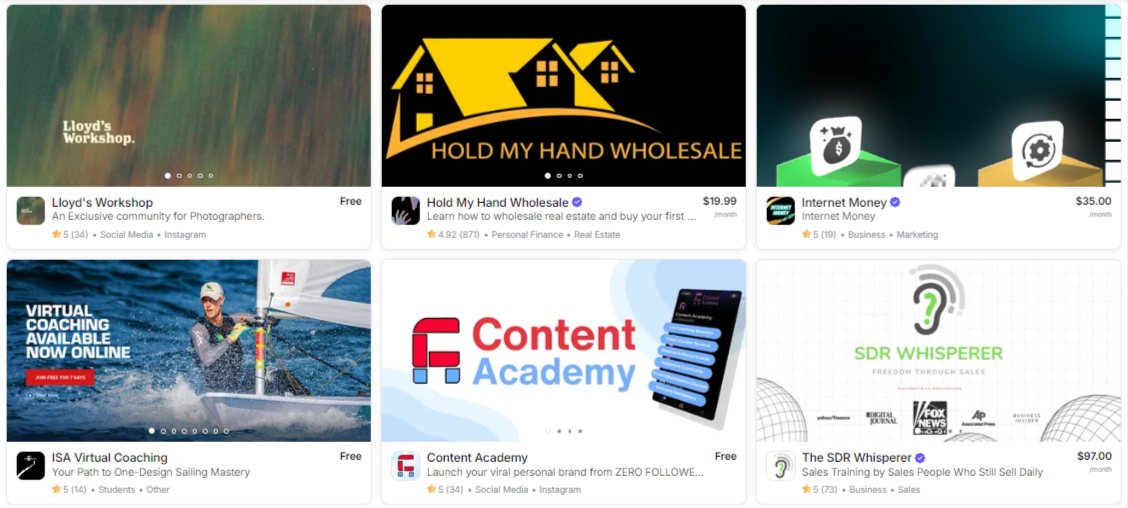
Along with services, we support the selling of all kinds of digital products, so if you want to expand your offering into courses, podcasts, ebooks, or anything else, you can do it all in one place. Whop takes care of payment processing, product fulfillment, reporting, analytics, and even dispute resolution.

What are you waiting for? Join tens of thousands of entrepreneurs like you who have made the leap and started their ideal online business on Whop.





